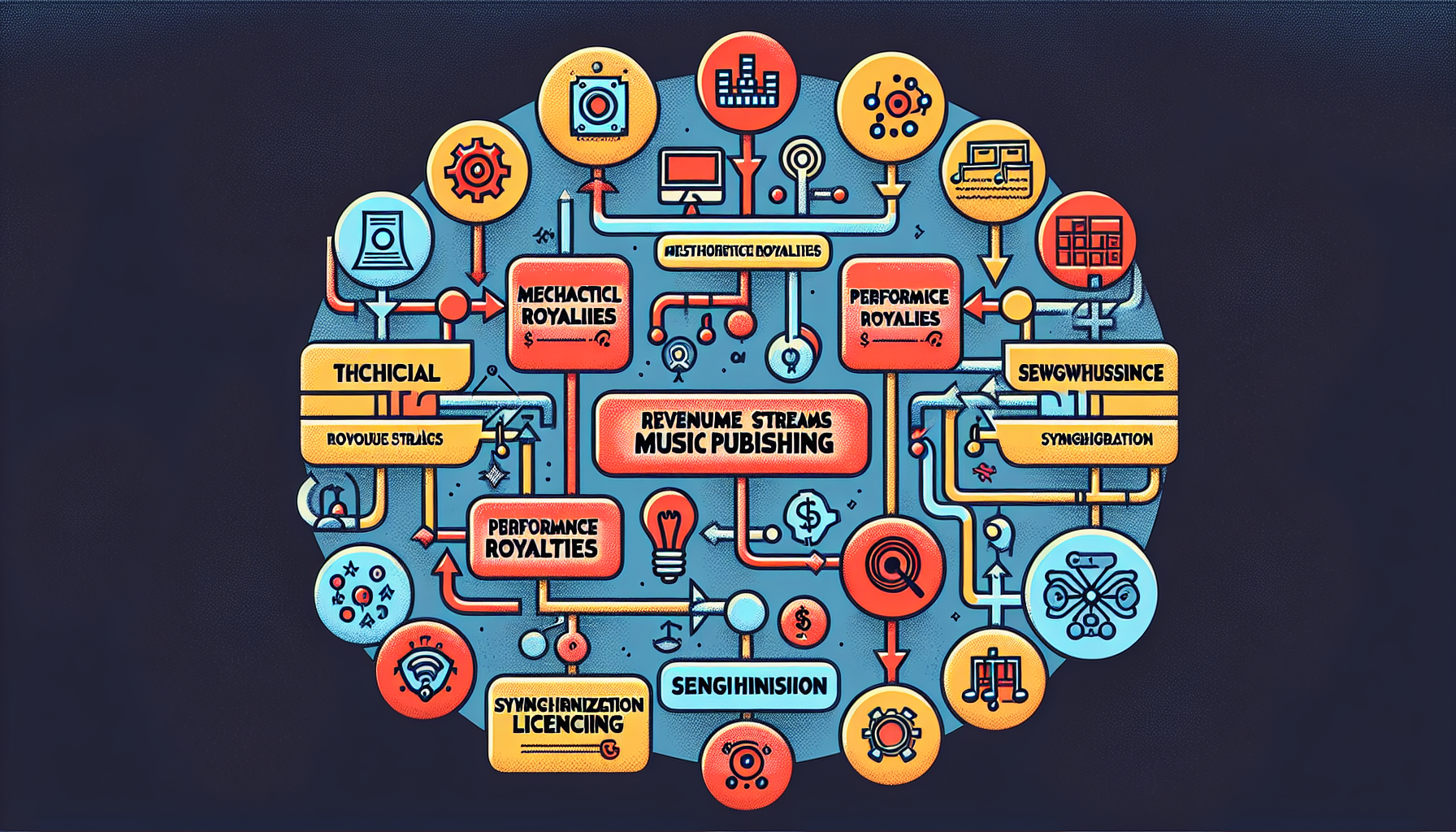Music publishing is a complex aspect of the music industry that deals with the management of musical compositions’ copyrights. For songwriters, composers, and music publishers, understanding music publishing revenue streams is crucial to maximizing their earning potential and protecting their intellectual property.
Types of Music Publishing Revenue Streams
1. Performance Royalties: These are earned when a musical composition is performed in public. This includes plays on the radio, live performances, TV shows, and streaming platforms. Performance rights organizations (PROs) like ASCAP, BMI, and SESAC collect these royalties on behalf of the rights holders.
2. Mechanical Royalties: These royalties are generated when a song is reproduced or distributed, such as through physical copies (CDs, vinyl) or digital downloads and streams. Mechanical royalties are collected and distributed by agencies like the Harry Fox Agency.
3. Synchronization Licensing: This revenue stream involves granting permission for music to be used in visual media, such as films, TV shows, commercials, and video games. Sync licenses can provide lucrative opportunities for songwriters and publishers.
4. Print Music Royalties: When sheet music or music books are printed and sold, the creators are entitled to print music royalties. This stream of revenue is important for composers and arrangers.
Challenges in Music Publishing Revenue
Despite the various revenue streams available in music publishing, navigating the industry can be challenging for creators. One common issue is royalty collection and distribution, as tracking music usage and ensuring accurate payments can be difficult, especially in the digital age.
Another challenge is understanding and negotiating licensing deals, especially for emerging artists. Determining fair compensation for the use of music in different platforms and mediums requires knowledge and expertise in music copyright law.
Importance of Understanding Music Publishing Revenue Streams
Understanding music publishing revenue streams is crucial for music creators to ensure they are fairly compensated for their work. By knowing how royalties are generated, collected, and distributed, artists can make informed decisions about their careers, negotiate favorable deals, and protect their intellectual property rights.
In conclusion, music publishing revenue streams play a vital role in the livelihood of songwriters, composers, and music publishers. By grasping the intricacies of these revenue streams, music creators can navigate the industry effectively and capitalize on opportunities to monetize their creative works.
Sync Music and Indie Publishing Real X News



Leave a Reply
You must be logged in to post a comment.